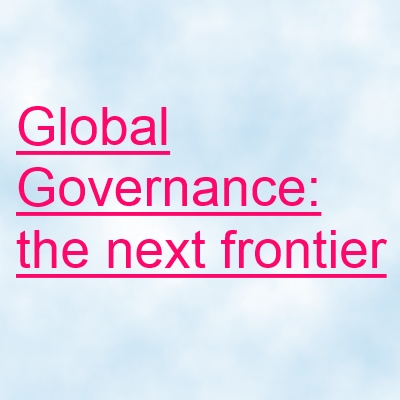
Global governance: the next frontier, a concept on global governance as a guide for a new ambition in international diplomacy

In
1. When the Cold War ended, it was generally thought that a new international era was about to begin. Emphasis on military security seemed to fade away. International diplomacy turned its efforts and attention to those challenges that were of importance to everybody’s daily life. Globalisation was to become a source of wealth for all, economic, social, technological and cultural wealth. A series of global conferences laid the groundwork of an ambitious global inclusive agenda aimed at the sustainability of mankind, governed by multilateral cooperation and institutions and binding rules for all. It was now widely recognised that anybody’s fate ultimately depended upon everybody’s fate. The once clear border between domestic and international had become porous. 2. The nineties witnessed the rise and fall of this sense of a shared global fate. Intractable problems, both economic and political, challenged the prospects of rapid successes in global governance. Member states failed to buttress the institutions intended to deal with global problems with the resources needed to attain the goals that they were expected to pursue. 3. The international community failed to put an early end to human suffering in Somalia, former Yugoslavia or Rwanda. States imploded, especially in Africa, often with the international community as a powerless bystander. Then came September 11, Afghanistan and Iraq. 4. Moreover, globalisation turned out to also encompass a dark side. Drugs and human trafficking, organised crime, environmental degradation, infectious diseases and financial turmoil showed how the impact of borderless forces have exploded faster than our ability to cope with them. These issues are like global warming: the consequences are diffuse and only perceptible in the long term. But at a certain point, the resulting strains will have become uncontrollable. 5. Started in an atmosphere of euphoria and a strong belief in the feasibility of the polity, the post-Cold War ended in its mirror image. We are now living in times of global tensions and divisions, where consensus and cooperation have become endangered species. Disillusion, anxiety and uncertainty are now major characteristics all around the world. Worldwide public opinion surveys indicate that people all across the globe view their future in dire terms. Large majorities in many parts of the world, when asked whether they think the children of today in their countries will be better or worse off when they grow up than people now, reply ‘worse’. 6. It is vital to regenerate the prospect of an effective and credible rule-based system of co-operative global governance, legitimised by representative institutions and by the rule of law. Global governance needs effective institutions and mechanisms for global action.
(Photo credit: Egmont Institute)